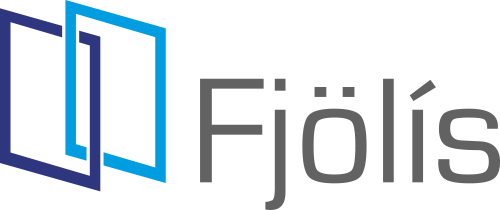Norrænu aðildarfélögin hafa ákveðið að senda frá sér sameiginlega yfirlýsingu í tengslum
við álitaefni tengd gervigreind og er yfirlýsingin birt hér á síðu Fjölís í óbreyttri mynd.
Three Principles
for Responsible Generative AI
A Joint Statement on AI Licensing from the Nordic Reproduction Rights Organisations (RROs)
Tekst & Node (Denmark), Fjölís (Iceland), Bonus Copyright Access (Sweden), Kopiosto (Finland), Fjølrit (Faroe Islands) and Kopinor (Norway) hereby encourage all AI companies to proactively engage with rightsholders and Collective Managements Organisations (CMOs) to respect creators’ rights.
The invention of generative AI is a product of human creativity. To help safeguard that creativity, it is of great importance that the ongoing development and innovation in AI technology does not compromise the sustainability or integrity of creative works.
Respect for creators’ rights is expected of everyone, and AI companies are not an exception.
AI tools should be developed with respect for and in compliance with copyright law. Here are our three principles for ensuring a responsible and ethical development of generative AI within a legal and sustainable framework.
1. Transparency
Being transparent about the data used for developing generative AI models is crucial when it comes to respecting copyrights. When works protected by copyright are used as AI training data, the companies’ transparency is a necessity for rightsholders to enforce their copyrights.
Providing information about the training material builds trust between rightsholders and AI companies. If information about the sources used for training is not disclosed, then it must be assumed that copyrighted material is being used without permission.
2. Permission
According to copyright law, creators have the right to decide how, where and by whom their works are used.
This principle also applies to the development of generative AI: Creators and rightsholders have the right to decide whether they want their texts and images used as training data or not. This applies to all stages of the generative AI value chain – from the training of models to the material used for prompting.
Collective management licensing provides essential infrastructure for licensing copyrighted content at a scale. While respecting the rights of individual creators and publishers to license directly, CMOs offer indispensable mechanisms for securing rights in complex and large-scale contexts – such as AI training and development.
Training AI models with copyrighted materials without permission or clear legal basis can be considered infringement.
3. Fair Compensation
Creators make a living by selling licences for the use of their creative works. If creators and rightsholders agree to participate in the development of AI with their works, they must be compensated fairly. The right to fair compensation includes any previous unauthorised use.
Through CMOs, AI companies can obtain legal access to broad repertoires, ensure legal certainty, and secure fair remuneration for creators and rightsholders in a transparent and accountable manner.
Copyrighted texts and images are highly valuable for the development of society, and fair compensation is a prerequisite for future creative work. Following these principles is necessary for continued sustainability throughout the creative sector.

